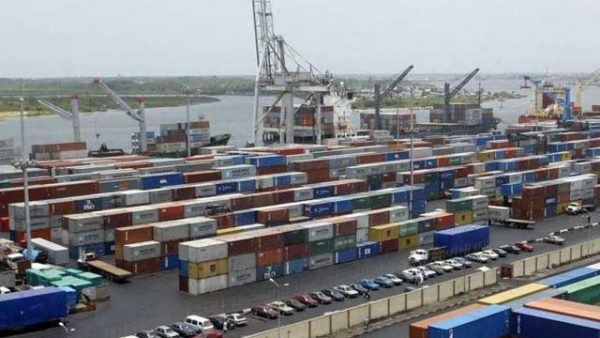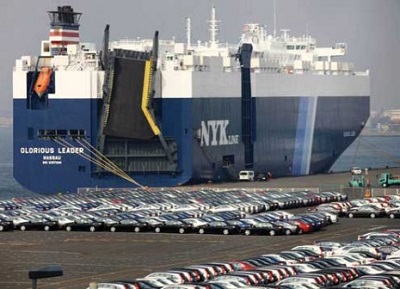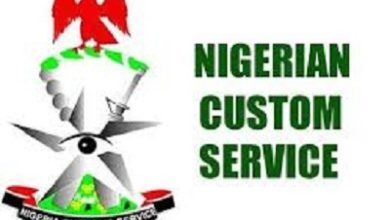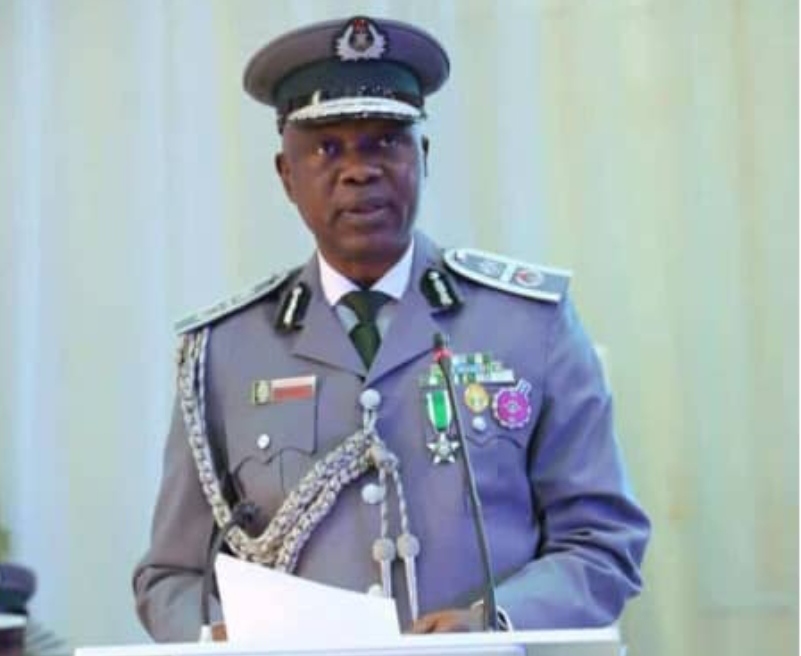Many travails of maritime sector in 2018
 Just like a fresh wind in the early morning cast, Nigeria’s maritime sector oozed towards the anticipation of a fulfilling year. Great, indeed was the journey, but the year 2018 was characterised with many travails that marred the progressive agenda of the sector.
Just like a fresh wind in the early morning cast, Nigeria’s maritime sector oozed towards the anticipation of a fulfilling year. Great, indeed was the journey, but the year 2018 was characterised with many travails that marred the progressive agenda of the sector.
The sector was not without a touch of success, raging from the seizure of firearms by the Nigerian Customs Service (NCS), to the successful receipt of one of the larges oil production facility in world- Egina FPSO (Floating Production Storage Offloading vessel) Although some maritime sector bill that have been hanging with the National Assemble was eventually passed in the year, but Presidential Accent has been an herculean task.
The Federal Government had, early in the year, made frantic efforts to revive the dying sector through several policies of which majorly is the Executive Order championing the Ease of Doing Business directive by the Vice President Yemi Osinbajo on May 19, 2018, but this is accessed to have failed woefully.
The major stakeholders that were expected to uphold the order rather grossly violated it, many government agencies flouted the order without regards to the constituted authority.
Insecurity on waterways
Rising cases of pirate attacks on ships around the Nigerian waters have further jeopardised the quest for heightened sea trade in the country.
Already, the continued spate of pirate attacks, which has been condemned by maritime organisations globally, has forced shipping firms to place a war risk insurance premium on all vessels that call at Nigerian ports.
This, according to the Managing Director, Nigerian Ports Authority (NPA), Hadiza Bala Usman, leads to high cost of cargo importation.
ICC International Maritime Bureau’s (IMB) Piracy Reporting Centre (PRC), report showed that 41 cases of pirate attacks were recorded on Nigerian waters in the last nine months, while 29 crewmembers were kidnapped.
However, the Director-General, Nigerian Maritime Administration and Safety Agency (NIMASA), Dr. Dakuku Peterside, has challenged the fairness and balance in the reportage of piracy issues on Nigeria’s territorial waters.
Peterside decried what he described as ‘exaggeration of reports’ on incidences on the country’s waterways by the IMB, a specialised department of the International Chamber of Commerce (ICC), dedicated to fighting maritime crime and malpractice.
Bad roads and ray of hope
The terminal operators, clearing agents, importers have continued to suffer untold hardship from the deplorable condition of the ports access roads and the attendant traffic gridlock that have characterized the route.
The terminal operators at the seaports are now crying fowl on the dire implications of the gridlock, which has taken its toll on the over N200 billion investment at the ports. The operators are now groaning. They can no longer meet their Guarantee Minimum Tonnage (GMT), on which their payment in benchmarked.
Nigeria deserves to have some of the best and most celebrated seaports in Africa considering the enormous potential in the country. In actual fact the ports in Lagos have capacity to handle much more cargo than they are already handling. However, the ports have been restricted due to poor cargo clearing processes, multiple government agencies, and very bad port access roads that have made the ports less competitive.
The Lagos Chamber of Commerce and Industry (LCCI) in its maritime report had stated that about 5,000 trucks seek access to Apapa and Tin Can ports in Lagos every day, and these trucks have continued to plunder despite that access roads and the two ports were originally meant to accommodate only 1,500 trucks.
Also, the Guardian investigations revealed that the cost of transportation from Apapa has increased by about 400 per cent. For example movement of consignments from Apapa to Trade fair complex was between N80,000 – N120,000 but now it is between N550,000 and N600,000.
Seaport Terminal Operators Association of Nigeria (STOAN) estimated that the nation is losing N20 billion daily to the avoidable situation.
The Federal Ministry of Works, Power and Housing, had recently flagged off construction works on Apapa-Oshodi-Oworonshoki Expressway, having secured approval of N72.9 billion from the Federal Executive Council, but the the contractors are yet to mobilise to site.
Maritime bills hang with presidency
The National Assembly had during the year considered eight maritime- related bills. Some have been passed while others are awaiting presidential assent.
The bills include the Nigerian Ports Authority Act repeal and re-enactment) bill 2016, National Inland Waterways Act, CAPN47 repeal and re-enactment bill 2016, National Transport Commission bill 2016, Nigeria Coast Guards bill 2018, Suppression of Piracy bill 2017 and the United Nations Conventions on the Law of the Sea (UNCLOS) 1958 and 1982 bill 2017.
Others are Maritime Security Operations Coordinating Board Act (amendment) bill 2018, Nigeria Maritime Administration and Safety Agency Act (amendment) bill, 2018, Coastal and Inland Shipping (Cabotage) Act (amendment) bill 2018 and Suppression of Piracy and Other Maritime Offences bill 2018.
President Muhammadu Buhari has however declined assent to two Transport Bills namely the National Transport Commission Bill and Federal Road Authority Establishment Bill.
President Buhari reportedly declined assent to the National Transport Commission Bill 2018 and Federal Road Authority Establishment Bill, 2018 citing duplication of functions of the supervising ministries as one of the reasons.
Overtime cargoes
The uncoordinated activities coupled with poor road infrastructure led to cargo congestion at the ports as unprecedented number of overtime cargoes littered the seaports, with huge loss of revenue and congestion implications.
It was estimated that over 10,000 cargoes were stranded at the seaports. These cargoes were occupied large space that should have accommodated new incoming goods. The situation latter prompted the shipping lines to introduce surcharges on Nigerian bound cargoes.
The situation took a dramatic twist when shipping giant, CMA CGM introduced a surcharge of about $400 on Lagos bound cargoes in October 2018. The shipping line based its action on what it called disruption of its activities based on congestion in Lagos ports.
But the Nigerian Shippers Council (NSC) and NPA immediately cautioned the firm and threatened to sanction any other shipping firm that towed that line.
They blamed some of the shipping companies for failure to fully comply with the directive to acquire and operate holding bays, as they have either failed to utilise their holding bays at all or do not have adequate capacity to handle the volume of containers that they deal with.
Truckers strike paralysed ports operations
It all started like a child’s play, until the truck drivers made good of their threats and halt lifting of container from the ports around July this year. This situation contributed to the congestion at ports and called the government to order.
The feud between truck drivers and officials of the Nigerian Navy and the Nigerian Ports Authority is causing serious congestion at the ports, with thousands of containers unable to exit the terminals.
The truck drivers strike was to protest alleged extortion by the officials handling the truck call up system at the ports. It took the intervention of the Managing Director, NPA and other top government representatives to halt the strike. Over 6000 containers were shut inside the ports.
Bribery, corruption, extortion reigns
Just as the clearing agents and freight forwarders have accused officers of the Nigerian customs of bribery and corruption, the truck owners have also alleged extortion from the officers that were stationed to manage the traffic on Apapa port access roads.
Association of Maritime Truck Owners (AMATO) and the Container Truck Owners Association of Nigeria (COTOAN) said their boys are being subjected to wanton extortion by countless security agencies around the port.
They allegedly charge between N80,000.00 – N120,000.00 on each truck, depending on the particular operator’s power of negotiation.
Stakeholders disappointed
Spokesperson, Seaport Terminal Operators Association of Nigeria (STOAN), Bolaji Akinola, said: “We did not fare better. You can see what is happening. The roads to ports are not good, and when the roads are bad, cargo evacuation becomes an issue. Despite the huge investment in the ports, these constraints around the port are not helping us to maximize the potentials of our ports. And that way the terminal operator is shortchanged while government also losses revenue, because the ports belong to government, we are just running some terminals on behalf of government.
“For instance, I know of some terminal that did not handle up to 20 vessels in the whole of 2018. We have what we have Guarantee Minimum Tonnage, which is the lowest you must pay. So how do you expect such an operator to break even and then pay the minimum benchmark to government? It has been an extremely tough and challenging year for terminal operators, not just in Lagos but across the country. We are only hoping and praying that these issues will be addressed in 2019”.
National President of National Council of Managing Directors of Customs Licensed Agents, (NCMDCLA), Lucky Amiwero, said: “The year has been very bad. Poor policies and infrastructure have driven people and businesses out of the ports and Apapa area as a whole. It has not been convenient. A lot of businesses have closed shop. No access to the port. The components of trade facilitation which are predictability, consistency and transparency are not in place.
“When you look at our port system, the government has not done anything to improve the ports. The Ease of Doing Business has been so terrible. We are 184 from 190 countries. We are the last in Africa and in the West African Sub region. We are loosing fortunes everyday. People are closing businesses while cargoes are being diverted to neighbouring countries”, he said.
Amiwero said the ports access roads have been neglected alleging that the Federal Government just did a jamboree claiming they have kicked off construction, while no company is mobilized for the work.







